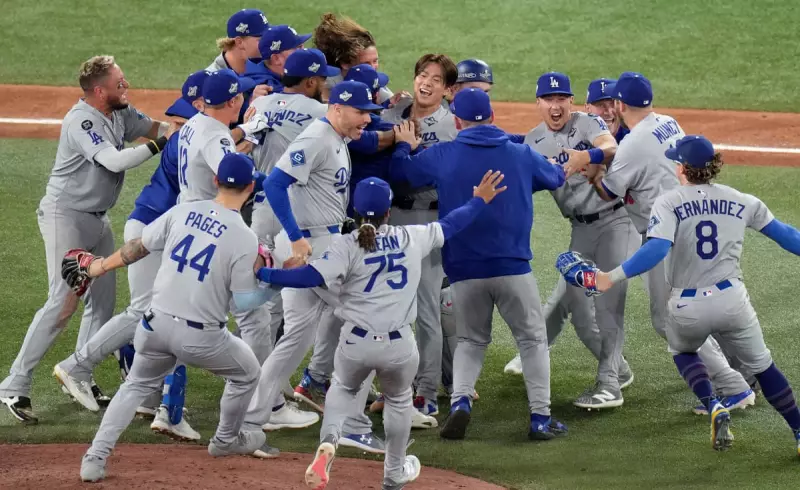
The Los Angeles Dodgers have transformed financial muscle into championship glory, securing the World Series title with a payroll that dwarfs every other team in Major League Baseball. Their staggering £270 million investment in player salaries has finally delivered the ultimate prize, but at what cost to competitive balance in the sport?
The Price of Glory
While champagne corks pop in the Dodgers' clubhouse, baseball purists are questioning whether such financial dominance undermines the spirit of competition. The Dodgers' payroll isn't just high—it's nearly double that of many competing franchises, creating what critics call an uneven playing field where wealth determines success.
Breaking the Bank for Baseball Brilliance
The Dodgers' financial strategy represents more than just spending—it's a calculated investment in elite talent. Their approach includes:
- Securing baseball's highest-paid stars with premium contracts
- Building depth that other teams simply cannot afford
- Absorbing massive contracts through strategic acquisitions
- Maintaining financial flexibility despite record expenditures
This victory validates their controversial approach, proving that in modern baseball, financial power can indeed translate directly to championship success.
The Competitive Balance Question
As the Dodgers celebrate, smaller-market teams face an uncomfortable reality: competing with such financial behemoths becomes increasingly difficult. The World Series win raises urgent questions about:
- Whether MLB's current financial structure needs reform
- How smaller-budget teams can realistically compete
- The long-term health of baseball as a competitive sport
- The impact on fan engagement when outcomes feel predetermined
"This isn't just a victory for the Dodgers—it's a statement about modern sports economics," notes one baseball analyst. "When one team can outspend others by such margins, it challenges the very concept of fair competition."
What This Means for Baseball's Future
The Dodgers' triumph may represent a watershed moment for Major League Baseball. Their success could encourage other wealthy franchises to follow similar spending strategies, potentially creating a league where financial resources become the primary determinant of success.
Meanwhile, the victory parade plans are underway in Los Angeles, where fans are celebrating a championship purchased at premium prices. The Dodgers have proven that money can indeed buy happiness—at least in the form of a World Series trophy.
As baseball looks toward future seasons, the conversation has shifted from mere player performance to fundamental questions about financial fairness and the soul of America's pastime.





